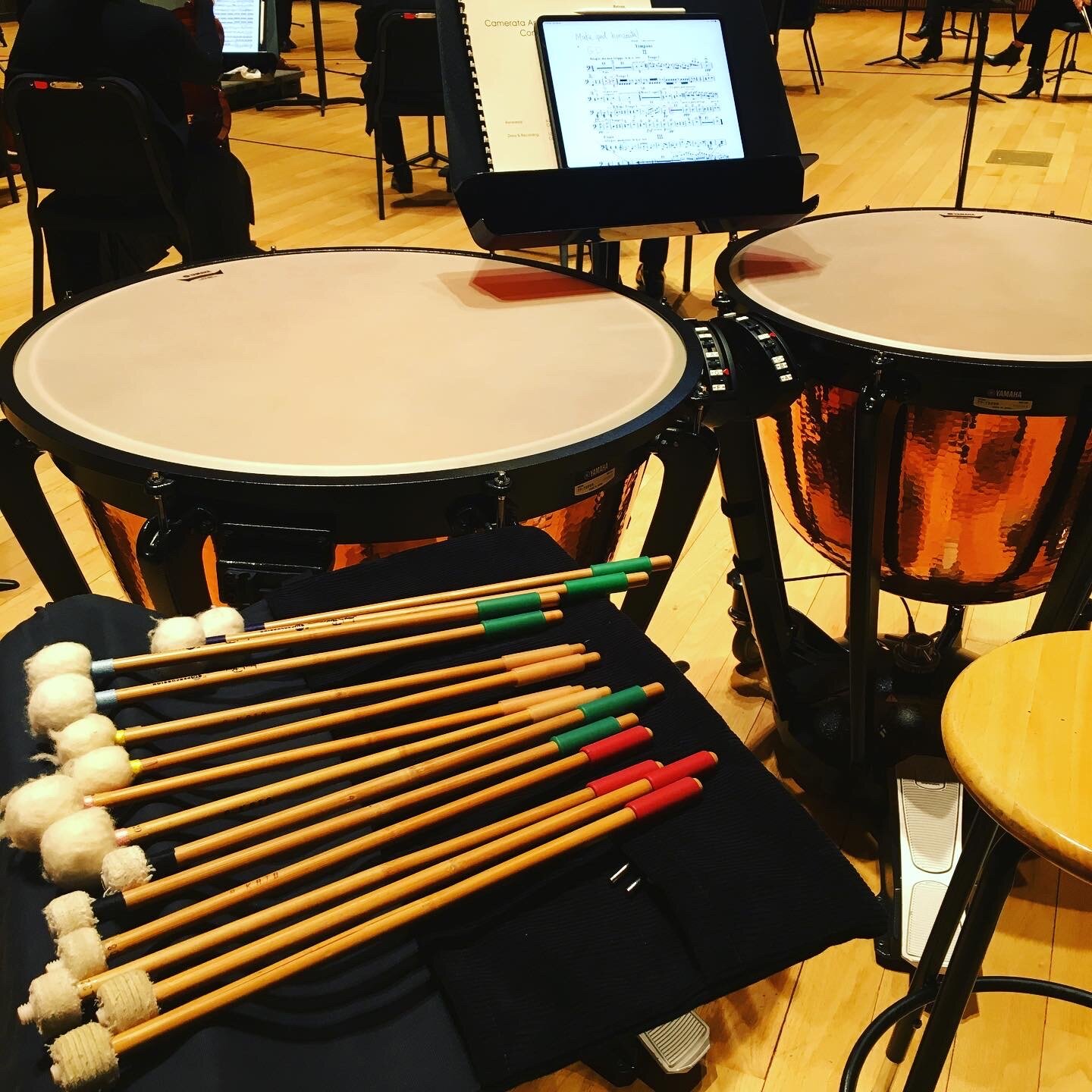How to Prepare for your First Rehearsal - Step by Step Guide -
I can't believe it's already the last week of February. Time flies! I was very fortunate to have an in-person performance opportunity this past weekend. The work involved playing 5 concerti for a professional video recording with just one 3 hour rehearsal and one 4 hour dress rehearsal/ videotaping. Since I haven't played in an orchestra for about a year, I wanted to make sure to sound my best. How did I do that? That's today's topic!
I missed playing with people in the same room so much!
Here is the step-by-step guide on how to prepare for your first rehearsal!
1) Get the music ASAP
Sometimes, it takes a while to receive the music because the librarian needs some time to prepare them. If you know the program already and are public domain classical music, check IMSLP website to find your part. While you are there, download the scores also. You will need them in later steps. *be aware that the part's edition on IMSLP might be different from what the orchestra is going to use. It's always best if you can get your music from the organizer.
2) Listen with the Score
Before you start practicing your part, find a recording of the piece on YouTube, Spotify, your CD collection (if you still have a CD player...), find a comfortable seat, and listen as you follow the score. I like to conduct while listening so I can make sure that I'm interpreting the beat correctly. The purpose of this is so that you understand the big picture. Make a mental note on tricky tempo changes, difficult spots, and musical styles.
3) Listen again with your Part
Now you can get to your part and listen again, but have a pencil handy this time. If you are in the winds, brass, percussion section, you have more rests than the string section. To avoid getting lost, you want to put in cues; noticeable instrument entrance (I love noting trumpet or horn entrances), orchestration change, soloist entrance (if it's a concerto), tutti section, etc. If anything is unclear, you can go back to the score. All the answers are there!
4) Practice with your Instrument(s)
At this stage, you should have a good idea of how the piece goes and which passage(s) needs practicing. You can keep marking your part as you play through the part. For example, I will write in stickings, timpani tuning changes, or stick/ mallet changes at this point. These are the things you don't find out until you play.
5) Play-Along Time!
Here comes the fun step. Get the recordings ready, and you are going to play along. (headphones recommended) Do you have a lot of rest like me? Don't try to skip and find your entrance. You want to practice counting rests and catching all the cues you have written in your part. If there are tricky spots, write down the minutes of the sport in the recording so you can go back to it quickly next time; it saves a lot of time later.
6) Play-Along with a different recording (if you have time)
The hardest thing about playing in an orchestra is that you have to be ready for anything. The conductor could go faster or slower than the recording you used to study. Your colleague might miss an entrance, and you might not hear the cue you wrote in. The orchestra might not be together and sounds very confusing and different from the recording.
That's why I recommend listening to a few different recordings of the same piece played by different people.
Final Thoughts:
The bottom line is that you want to strive to be the most prepared person in the room. Whether this is for your school, paid work, or volunteer, always play your best. There is a famous saying I've heard a lot in NYC, "You never know who is in the room." Playing your best anywhere is especially important in the freelancing world, where words of mouth and colleagues' recommendations are how you get work.
As a musician, every note we play speaks louder than words on your resume!
Here is today's inspiration for you! ⭐️
"You can't knock on opportunity's door and not be ready." – Bruno Mars
Until next time & Happy Practicing!

